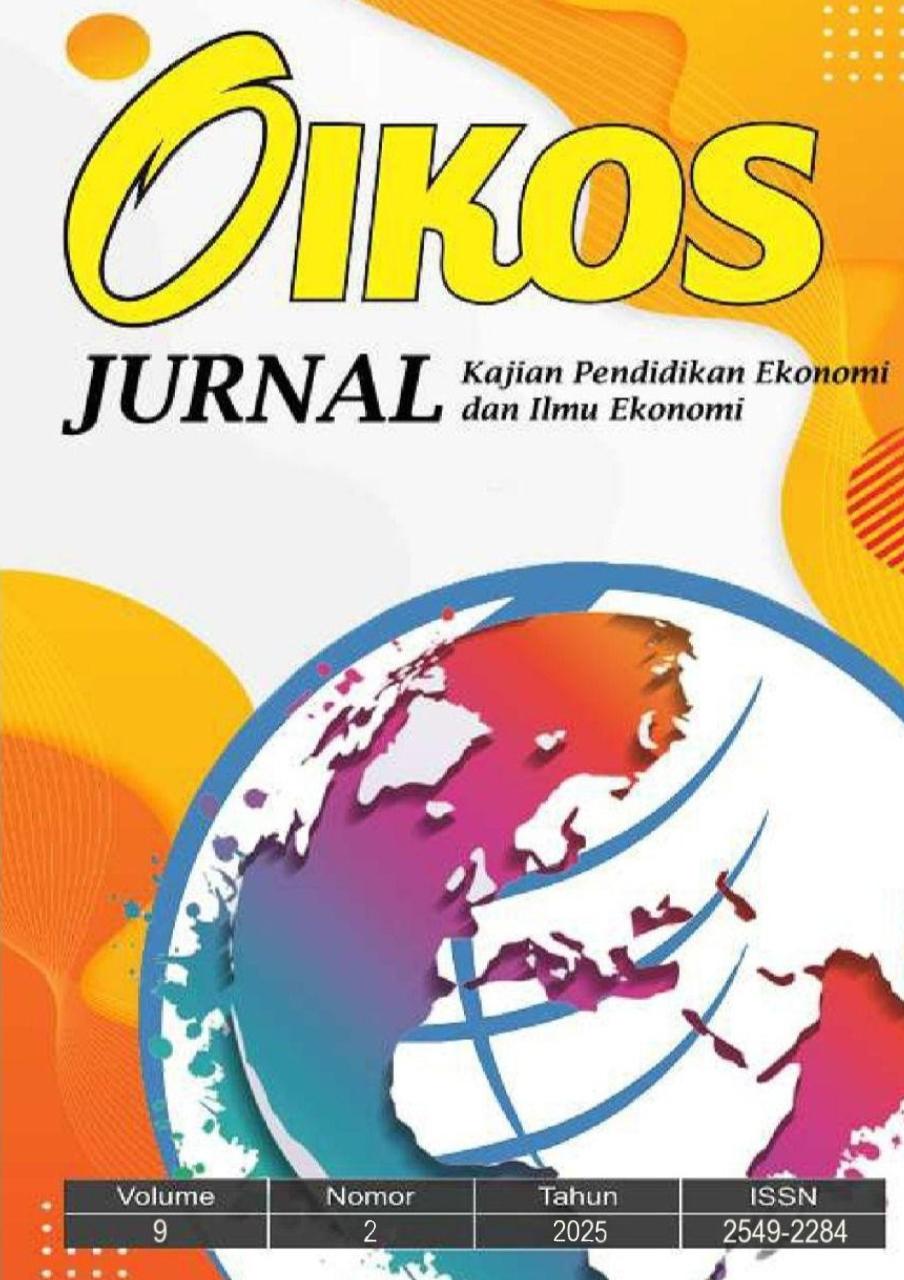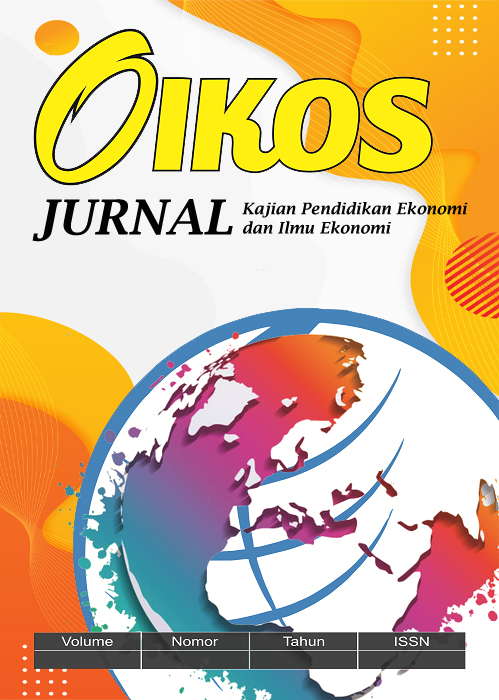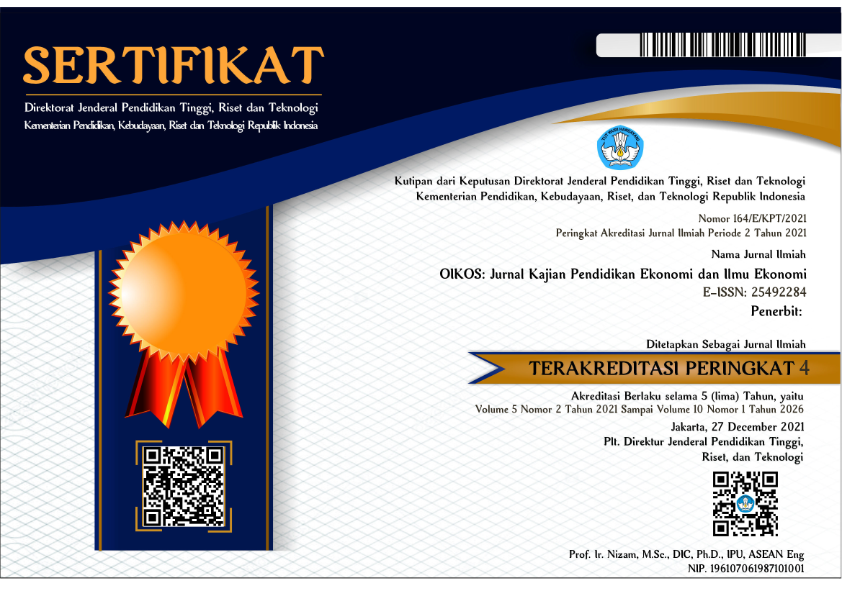PERAN KEPUASAN KERJA SEBAGAI MEDIATOR HUBUNGAN ANTARA PSIKOLOGI CAPITAL DAN DUKUNGAN ORGANISASI TERHADAP PERFORMA KERJA PEGAWAI RS PKU MUHAMMADIYAH KARTASURA
Keywords:
Psychological capital, Organizational support, Job satisfaction, Job performanceAbstract
This research aims to determine the effect of psychological capital, organizational support, and job satisfaction on employee job performance and the role of job satisfaction as a mediator of the relationship between psychological capital and support for employee job performance at PKU Muhammadiyah Kartasura Hospital. A quantitative research design is used in this research methodology The population of employees who work at PKU Muhammadiyah Kartasura Hospital totals 65 employees. A census with a sample size of 65 respondents served as the sampling method for this investigation. Data collection using a questionnaire. Data analysis techniques using SmartPLS 3.0 software. The results proved that psychological capital, organizational support, and job satisfaction positively and significantly affected employee performance. As well as psychological capital and organizational support have a positive and significant effect on employee job performance at PKU Muhammadiyah Kartasura Hospital. This proves that the combination of psychologically solid capital and good organizational support can create a work environment conducive to employee job satisfaction and, in turn, improve overall work performance.
Downloads
References
Agustiningrum, S. D. (2016). Pengaruh Persepsi Dukungan Organisasi terhadap Kinerja Karyawan yang Dimediasi oleh OCB. Jurnal Ilmu Manajemen, 4(2), 212–225.
Ahmad Afzali, Motahari Amir Arash, & Loghman, H.-S. (2014). Investigating the influence of perceived organizational support, psychological empowerment and organizational learning on job performance: an empirical investigation. Tehnicki Vjesnik-Technical Gazette, 3651(55), 623–629.
Ali, I., Khan, M. M., Shakeel, S., & Mujtaba, B. G. (2022). Impact of Psychological Capital on Performance of Public Hospital Nurses: the Mediated Role of Job Embeddedness. Public Organization Review, 22(1), 135–154. https://doi.org/10.1007/s11115-021-
00521-9
Alias, N. E., Abu, N., Koe, W.-L., Marmaya, N. H., & Romaiha, R. O. N. R. (2020). Does Psychological Capital Matter for the Public Sector Employees? A Survey of the Impact of Psychological Capital on Individual Job Performance in Malaysia. International Journal of Academic Research in Business and Social Sciences, 10(8), 772–787. https://doi.org/10.6007/ijarbss/v10-i8/7625
Alshebami, A. S. (2021). The Influence of Psychological Capital on Employees’ Innovative Behavior: Mediating Role of Employees’ Innovative Intention and Employees’ Job Satisfaction. SAGE Open, 11(3). https://doi.org/10.1177/21582440211040809
Biricik, Y. S. (2020). The Relationship between Psychological Capital, Job Performance and Job Satisfaction in Higher Education Institutions Offering Sports Education. World Journal of Education, 10(3), 57. https://doi.org/10.5430/wje.v10n3p57
Choi, W., Noe, R., & Cho, Y. (2020). What is responsible for the psychological capital-job performance relationship? An examination of the role of informal learning and person- environment fit. Journal of Managerial Psychology, 35(1), 28–41. https://doi.org/10.1108/JMP-12-2018-0562
Daswati, D., Wirawan, H., Hattab, S., Salam, R., & Iskandar, A. S. (2022). The effect of psychological capital on performance through the role of career engagement: Evidence from Indonesian public organizations. Cogent Social Sciences, 8(1). https://doi.org/10.1080/23311886.2021.2012971
Durrah, O., Alhamoud, A., & Khan, K. (2016). Positive psychological capital and job performance: The mediating role of job satisfaction. Ponte, 72(7), 214–225. https://doi.org/10.21506/j.ponte.2016.7.17
Efendi, S. (2021). Implementation of Talent Management as an Effort to Improve Employee Performance. Proceedings of the 2nd Annual Conference on Blended Learning, Educational Technology and Innovation (ACBLETI 2020), 560(Acbleti 2020), 537–542. https://doi.org/10.2991/assehr.k.210615.100
Ekawaty, Z., Saleh, A., & Rachmawaty, R. (2023). Strategi Peningkatan Kinerja Perawat Melalui Support Mental dan Gaya Pemimpinan Kepala Ruangan yang Dimediasi Oleh Psychological capital. 16(1), 53–66. https://doi.org/10.24252/kesehatan.v16i1.31064
Ertekin, A. B., & Avunduk, Y. (2021). The Relationship between Job Satisfaction and Job Performance: A Study on Sports Industry. Journal of Educational Issues, 7(2), 133. https://doi.org/10.5296/jei.v7i2.18949
Ghozali, I. (2021). Partial Least Squares : Konsep, Teknik dan Aplikasi Menggunakan Program SmartPLS 3.0 Untuk Penelitian Empiris (A. Tejokusumo (ed.); 3rd ed.). Badan Penerbit Universitas Diponegoro.
Helmi, T., & Abunar, M. (2021). The Impact Of Job Satisfaction On Employee Job Performance-Palarch’s. Journal Of Archaeology Of Egypt/Egyptology, 17(4), 510–520. Javadian, S. R., & Hosseini, A. (2020). The Relationship between Social Support and Job Performance of Social Workers. Social Behavior Research & Health, 4(1), 480–486.
https://doi.org/10.18502/sbrh.v4i1.2827
Jolly, P. M., Kong, D. T., & Kim, K. Y. (2021). Social support at work: An integrative review. In Journal of Organizational Behavior (Vol. 42, Issue 2). https://doi.org/10.1002/job.2485
Kaswan. (2019). Manajemen Sumber Daya Manusia Strategis (E. Kurnia (ed.); 1st ed.). CV Andi Offset.
Kurniawan, S., Praningrum, & Dharmayana, I. W. (2022). Pengaruh Persepsi Dukungan Organisasi Dan Komitmen Organisasi Terhadap Kinerja Pegawai Dimediasi Oleh Kepuasan Kerja Pada Pemerintah Daerah Kabupaten Bengkulu Tengah. The Manager Review, 4(1), 61–94. https://doi.org/10.33369/tmr.v4i1.25839
Liu, D., Yang, X., Zhang, C., Zhang, W., Tang, Q., Xie, Y., & Shi, L. (2022). Impact of Job Satisfaction and Social Support on Job Performance Among Primary Care Providers in Northeast China: A Cross-Sectional Study. Frontiers in Public Health, 10(June), 884955. https://doi.org/10.3389/fpubh.2022.884955
Luthans, F., Avolio, B. J., & Norman, S. M. (2007). Positive Psychological Capital: Measurement and Relationship with Performance and Satisfaction. Personnel Psychology, 60, 541–572.
Marbun, H. S., & Jufrizen, J. (2022). Peran Mediasi Kepuasan Kerja Pada Pengaruh Dukungan Organisasi Dan Lingkungan Kerja Terhadap Kinerja Pegawai Pada Kantor Dinas Ketahanan Pangan Dan Peternakan Provinsi Sumatera Utara. Jesya (Jurnal Ekonomi & Ekonomi Syariah), 5(1), 262–278. https://doi.org/10.36778/jesya.v5i1.617
Motowidlo, S. J., Borman, W. C., & Schmit, M. J. (1997). A Theory of Individual Differens in Task and Contextual Perfomance. In Human Performance (Vol. 10, Issue 2, pp. 71– 83).
Mustika, S. I., Rahardjo, K., & Prasetya, A. (2020). The Effect of Perceived Organizational Support and Psychological Capital on Job Satisfaction and Knowledge Sharing. BISNIS & BIROKRASI: Jurnal Ilmu Administrasi Dan Organisasi, 27(1). https://doi.org/10.20476/jbb.v27i1.11761
Paliga, M., Kozusznik, B., Pollak, A., & Sanecka, E. (2022). The relationships of psychological capital and influence regulation with job satisfaction and job performance. PLoS ONE, 17(8 August), 1–19. https://doi.org/10.1371/journal.pone.0272412
Popa, I., Ștefan, S. C., Olariu, A. A., Popa, Ștefan C., & Popa, C. F. (2022). Modelling the COVID‐19 Pandemic Effects on Employees’ Health and Performance: A PLS‐SEM Mediation Approach. International Journal of Environmental Research and Public Health, 19(3). https://doi.org/10.3390/ijerph19031865
Sabila, Y., & Febriansyah, H. (2021). The Impact of Psychological Capital Towards Job Satisfaction During COVID-19 Pandemic (Case Study at Government Institution in Cilegon City, Indonesia). European Journal of Business and Management Research, 6(4), 294–301. https://doi.org/10.24018/ejbmr.2021.6.4.997
Sigursteinsdottir, H., & Karlsdottir, F. B. (2022). Does Social Support Matter in the Workplace? Social Support, Job Satisfaction, Bullying and Harassment in the Workplace during COVID-19. International Journal of Environmental Research and Public Health, 19(8). https://doi.org/10.3390/ijerph19084724
Sugiyono. (2022). Metode Penelitian Kuantitatif (Setiyawami (ed.); 3rd ed.). CV Alfabeta. Thanh Ngo, T. (2021). Impact of Psychological Capital on Job Performance and Job
Satisfaction: A Case Study in Vietnam. Journal of Asian Finance, 8(5), 495–0503. https://doi.org/10.13106/jafeb.2021.vol8.no5.0495
identification and psychological capital. International Journal of Productivity and Performance Management, 67(1), 155–170. https://doi.org/10.1108/IJPPM-03-2016-
0060
Vuong, B. N., Tushar, H., & Hossain, S. F. A. (2023). The effect of social support on job performance through organizational commitment and innovative work behavior: does innovative climate matter? Asia-Pacific Journal of Business Administration, 15(5), 832–854. https://doi.org/10.1108/APJBA-06-2021-0256
Wibowo. (2017). Manajemen Kinerja (5th ed.). PT Raja Grafindo Persada.
Zhang, F., Liu, Y., & Wei, T. (2021). Psychological Capital and Job Satisfaction Among Chinese Residents: A Moderated Mediation of Organizational Identification and Income Level. Frontiers in Psychology, 12(October), 1–9. https://doi.org/10.3389/fpsyg.2021.719230
Downloads
Published
Issue
Section
License
Copyright (c) 2025 OIKOS: Jurnal Kajian Pendidikan Ekonomi dan Ilmu Ekonomi

This work is licensed under a Creative Commons Attribution 4.0 International License.









